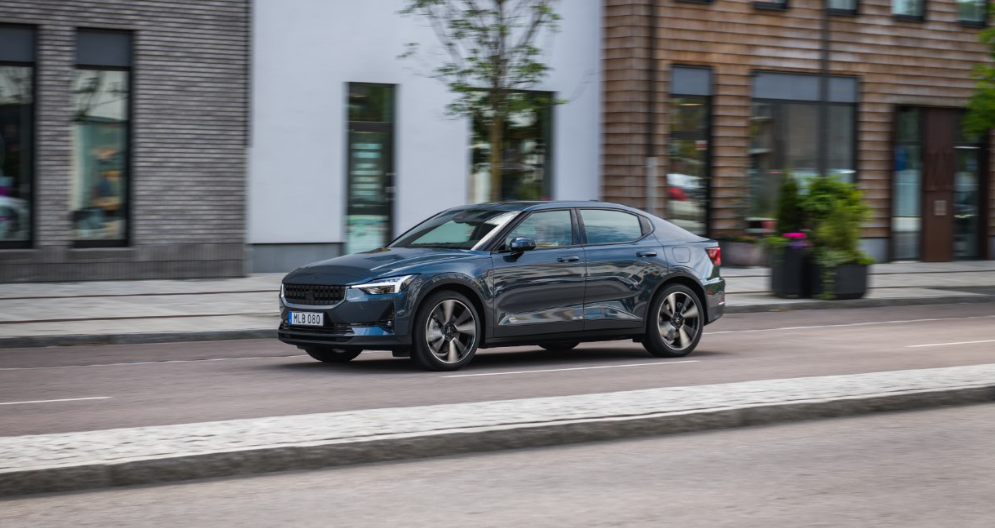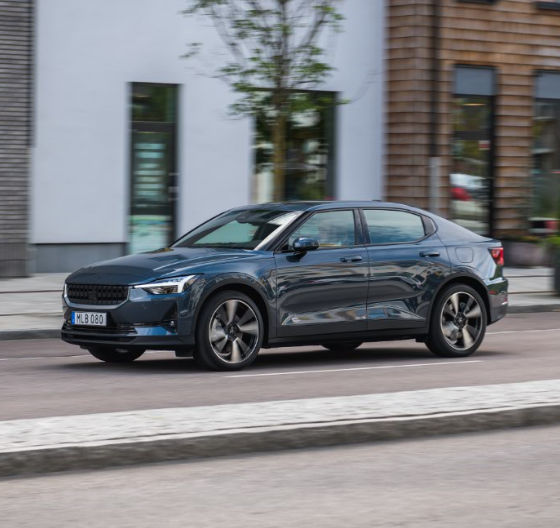Noted carmaker Aston Martin has found itself in a climate lobbying controversy, following the spread of an anti-EV study which peddled the idea that electric cars will have to travel as far as 50,000 miles before matching the carbon footprint of a comparable fossil fuel-powered vehicle. Needless to say, the controversy, which is now being dubbed in EV circles as #Astongate, is crumbling down, and it seems to be dragging Aston Martin’s name with it.
The report, titled “Decarbonising Road Transport: There Is No Silver Bullet,” made the rounds in several key media outlets last week, with agencies such as The Times and the The Daily Telegraph reporting on its alleged findings. The findings of the study promptly drew raised eyebrows from EV authorities online, most especially Auke Hoekstra, Senior Advisor on Electric Mobility at the Eindhoven Technical University, who is known for debunking anti-electric car narratives. It didn’t take long before the study was thoroughly debunked.
But the story only got stranger from there.
Electric vehicle experts and researchers opted to trace the source of the study, and what they found was quite interesting. As it turned out, the study was commissioned by companies including Aston Martin, Bosch, Honda, and McLaren. The study was presented as the work of a firm called Clarendon Communications, and it was commissioned shortly after UK Prime Minister Boris Johnson called for a ban on the sale of new fossil fuel-powered vehicles from 2030.
Interestingly enough, the communications firm behind the report, Clarendon Communications, was registered under the name of Rebecca Stephen, a part-time NHS nurse and the spouse of Aston Martin’s government affairs director, James Stephen. The PR firm was set up only this February, and it is registered to the address of a property jointly owned by the couple.
In an email to The Guardian, Rebecca Stephen stated that the report from Clarendon was “compiled” by the same companies that commissioned the study itself. According to Stephen, Clarendon was contacted by Bosch “to provide public affairs and stakeholder support” so its logo and contact details appear on the back of the report “for this purpose.” Bosch, for its part, noted via a spokeswoman that it fully supports the report. The company also called for “greater transparency” on the carbon footprint of vehicles.
As the “Astongate” controversy emerges, Labour MP Matt Western, who wrote the foreword to the Clarendon Communications report, expressed his disdain that the study was used as part of an anti-EV narrative. According to Western, he agreed to be part of the project to “push this agenda forward, rather than the opposite.” “I am disappointed that the report has since been used to push an anti-electrification line in the media. I was not aware of any link between the PR firm involved and Aston Martin,” he said.
As for Francis Ingham, the director-general of the Public Relations and Communications Association, he noted that PR agencies such as Clarendon must fight misinformation, not spread it. “We have a duty to fight misinformation, not purvey it. PR agencies should be fully transparent about who they represent. Failure to disclose client relationships damages trust in our industry and lends credence to misleading perceptions of PR as a sinister practice,” Ingham said.
Amidst the shift of the auto industry towards electric vehicles, Aston Martin is among those that are being left behind. The company has canceled its RapidE electric vehicle and is currently not promising anything electric until 2026. The company has handed a fifth of its equity to Mercedes-Benz in exchange for access to the German luxury automaker’s hybrid and EV tech.

Elon Musk
Celebrating SpaceX’s Falcon Heavy Tesla Roadster launch, seven years later (Op-Ed)
Seven years later, the question is no longer “What if this works?” It’s “How far does this go?”
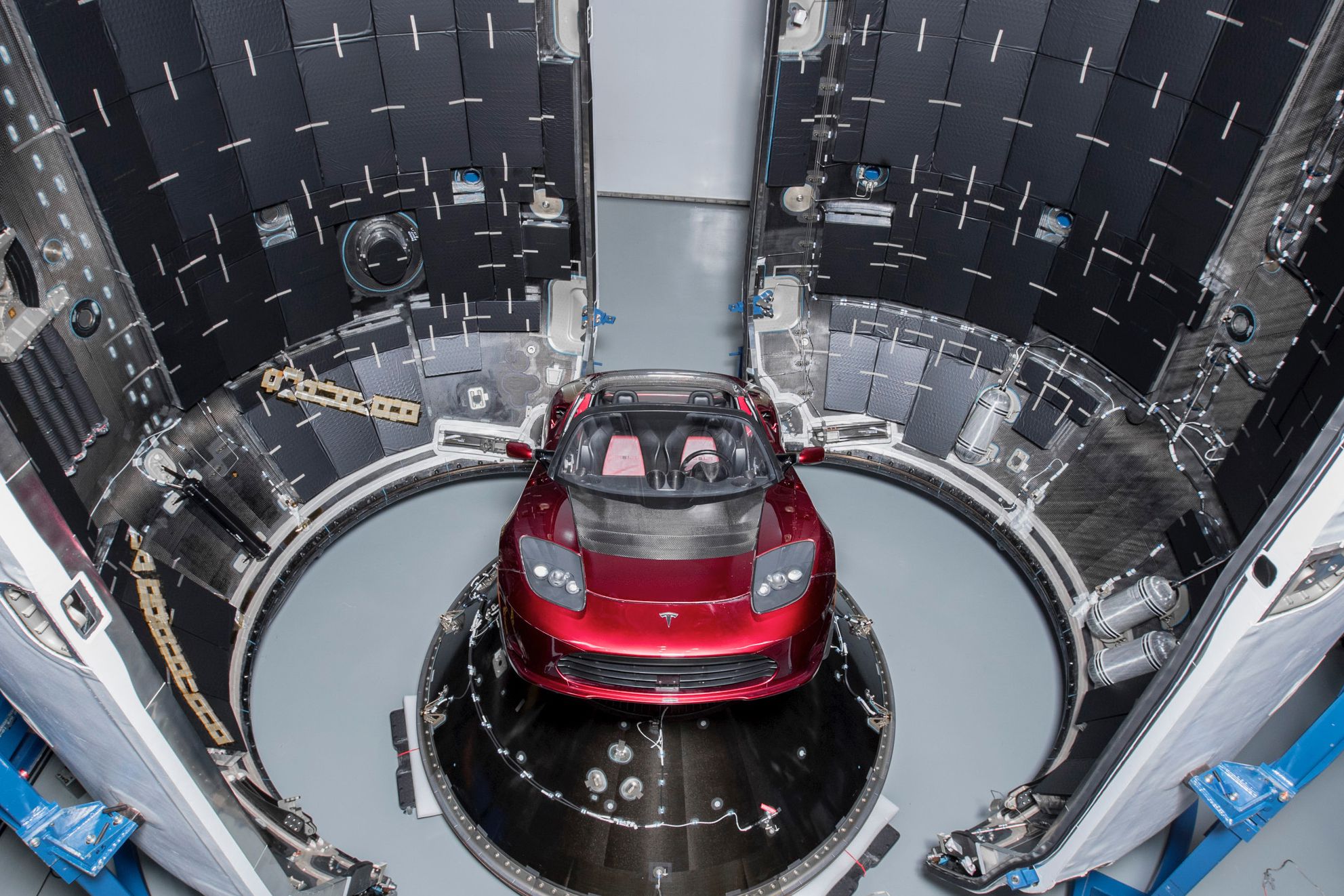
When Falcon Heavy lifted off in February 2018 with Elon Musk’s personal Tesla Roadster as its payload, SpaceX was at a much different place. So was Tesla. It was unclear whether Falcon Heavy was feasible at all, and Tesla was in the depths of Model 3 production hell.
At the time, Tesla’s market capitalization hovered around $55–60 billion, an amount critics argued was already grossly overvalued. SpaceX, on the other hand, was an aggressive private launch provider known for taking risks that traditional aerospace companies avoided.
The Roadster launch was bold by design. Falcon Heavy’s maiden mission carried no paying payload, no government satellite, just a car drifting past Earth with David Bowie playing in the background. To many, it looked like a stunt. For Elon Musk and the SpaceX team, it was a bold statement: there should be some things in the world that simply inspire people.
Inspire it did, and seven years later, SpaceX and Tesla’s results speak for themselves.
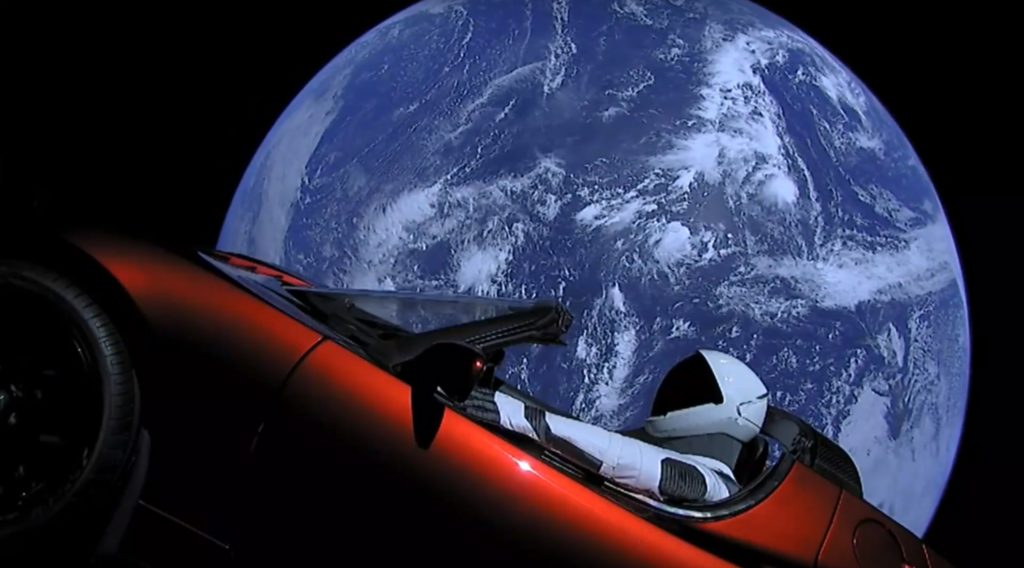
Today, Tesla is the world’s most valuable automaker, with a market capitalization of roughly $1.54 trillion. The Model Y has become the best-selling car in the world by volume for three consecutive years, a scenario that would have sounded insane in 2018. Tesla has also pushed autonomy to a point where its vehicles can navigate complex real-world environments using vision alone.
And then there is Optimus. What began as a literal man in a suit has evolved into a humanoid robot program that Musk now describes as potential Von Neumann machines: systems capable of building civilizations beyond Earth. Whether that vision takes decades or less, one thing is evident: Tesla is no longer just a car company. It is positioning itself at the intersection of AI, robotics, and manufacturing.
SpaceX’s trajectory has been just as dramatic.
The Falcon 9 has become the undisputed workhorse of the global launch industry, having completed more than 600 missions to date. Of those, SpaceX has successfully landed a Falcon booster more than 560 times. The Falcon 9 flies more often than all other active launch vehicles combined, routinely lifting off multiple times per week.
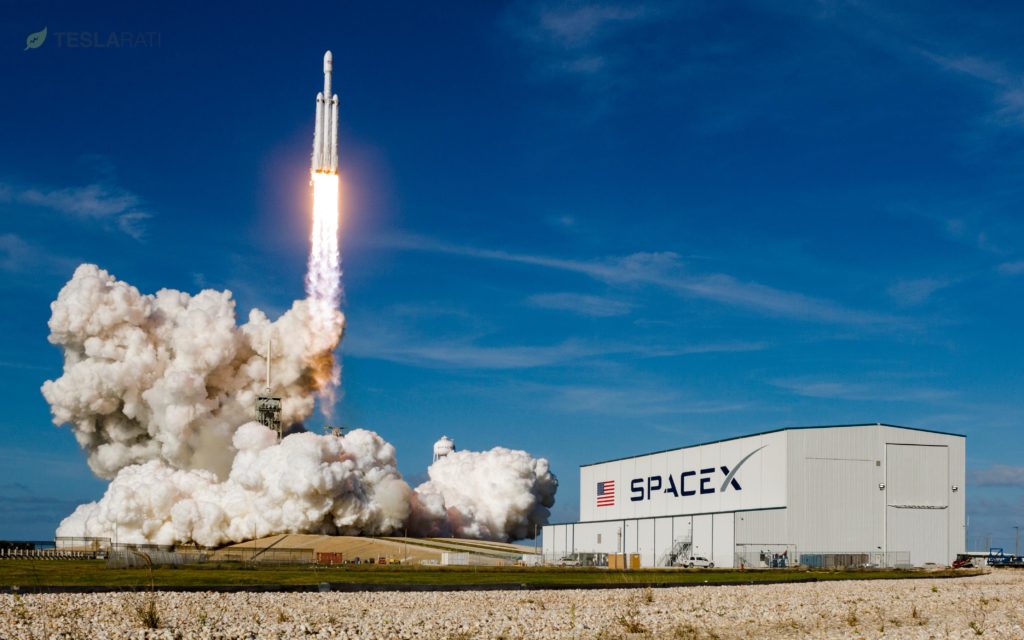
Falcon 9 has ferried astronauts to and from the International Space Station via Crew Dragon, restored U.S. human spaceflight capability, and even stepped in to safely return NASA astronauts Butch Wilmore and Suni Williams when circumstances demanded it.
Starlink, once a controversial idea, now dominates the satellite communications industry, providing broadband connectivity across the globe and reshaping how space-based networks are deployed. SpaceX itself, following its merger with xAI, is now valued at roughly $1.25 trillion and is widely expected to pursue what could become the largest IPO in history.
And then there is Starship, Elon Musk’s fully reusable launch system designed not just to reach orbit, but to make humans multiplanetary. In 2018, the idea was still aspirational. Today, it is under active development, flight-tested in public view, and central to NASA’s future lunar plans.
In hindsight, Falcon Heavy’s maiden flight with Elon Musk’s personal Tesla Roadster was never really about a car in space. It was a signal that SpaceX and Tesla were willing to think bigger, move faster, and accept risks others wouldn’t.
The Roadster is still out there, orbiting the Sun. Seven years later, the question is no longer “What if this works?” It’s “How far does this go?”
Energy
Tesla launches Cybertruck vehicle-to-grid program in Texas
The initiative was announced by the official Tesla Energy account on social media platform X.
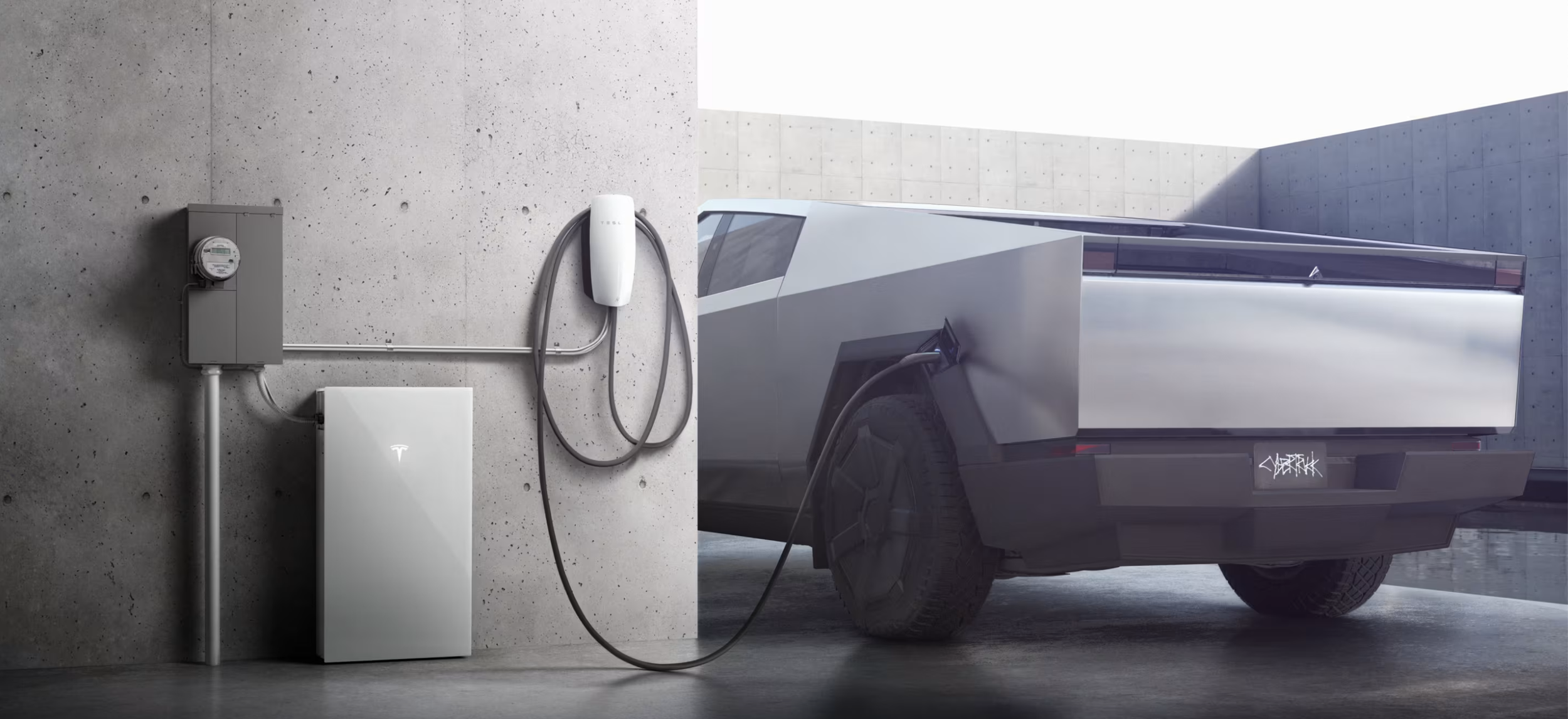
Tesla has launched a vehicle-to-grid (V2G) program in Texas, allowing eligible Cybertruck owners to send energy back to the grid during high-demand events and receive compensation on their utility bills.
The initiative, dubbed Powershare Grid Support, was announced by the official Tesla Energy account on social media platform X.
Texas’ Cybertruck V2G program
In its post on X, Tesla Energy confirmed that vehicle-to-grid functionality is “coming soon,” starting with select Texas markets. Under the new Powershare Grid Support program, owners of the Cybertruck equipped with Powershare home backup hardware can opt in through the Tesla app and participate in short-notice grid stress events.
During these events, the Cybertruck automatically discharges excess energy back to the grid, supporting local utilities such as CenterPoint Energy and Oncor. In return, participants receive compensation in the form of bill credits. Tesla noted that the program is currently invitation-only as part of an early adopter rollout.
The launch builds on the Cybertruck’s existing Powershare capability, which allows the vehicle to provide up to 11.5 kW of power for home backup. Tesla added that the program is expected to expand to California next, with eligibility tied to utilities such as PG&E, SCE, and SDG&E.
Powershare Grid Support
To participate in Texas, Cybertruck owners must live in areas served by CenterPoint Energy or Oncor, have Powershare equipment installed, enroll in the Tesla Electric Drive plan, and opt in through the Tesla app. Once enrolled, vehicles would be able to contribute power during high-demand events, helping stabilize the grid.
Tesla noted that events may occur with little notice, so participants are encouraged to keep their Cybertrucks plugged in when at home and to manage their discharge limits based on personal needs. Compensation varies depending on the electricity plan, similar to how Powerwall owners in some regions have earned substantial credits by participating in Virtual Power Plant (VPP) programs.
News
Samsung nears Tesla AI chip ramp with early approval at TX factory
This marks a key step towards the tech giant’s production of Tesla’s next-generation AI5 chips in the United States.

Samsung has received temporary approval to begin limited operations at its semiconductor plant in Taylor, Texas.
This marks a key step towards the tech giant’s production of Tesla’s next-generation AI5 chips in the United States.
Samsung clears early operations hurdle
As noted in a report from Korea JoongAng Daily, Samsung Electronics has secured temporary certificates of occupancy (TCOs) for a portion of its semiconductor facility in Taylor. This should allow the facility to start operations ahead of full completion later this year.
City officials confirmed that approximately 88,000 square feet of Samsung’s Fab 1 building has received temporary approval, with additional areas expected to follow. The overall timeline for permitting the remaining sections has not yet been finalized.
Samsung’s Taylor facility is expected to manufacture Tesla’s AI5 chips once mass production begins in the second half of the year. The facility is also expected to produce Tesla’s upcoming AI6 chips.
Tesla CEO Elon Musk recently stated that the design for AI5 is nearly complete, and the development of AI6 is already underway. Musk has previously outlined an aggressive roadmap targeting nine-month design cycles for successive generations of its AI chips.
Samsung’s U.S. expansion
Construction at the Taylor site remains on schedule. Reports indicate Samsung plans to begin testing extreme ultraviolet (EUV) lithography equipment next month, a critical step for producing advanced 2-nanometer semiconductors.
Samsung is expected to complete 6 million square feet of floor space at the site by the end of this year, with an additional 1 million square feet planned by 2028. The full campus spans more than 1,200 acres.
Beyond Tesla, Samsung Foundry is also pursuing additional U.S. customers as demand for AI and high-performance computing chips accelerates. Company executives have stated that Samsung is looking to achieve more than 130% growth in 2-nanometer chip orders this year.
One of Samsung’s biggest rivals, TSMC, is also looking to expand its footprint in the United States, with reports suggesting that the company is considering expanding its Arizona facility to as many as 11 total plants. TSMC is also expected to produce Tesla’s AI5 chips.
